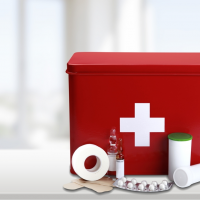Grief and Resilience

Spring is the season of new beginnings. While it sometimes seems that it is impossible for us to recover from certain losses in our life, especially the loss of a loved one, the cycle of rebirth that accompanies each Spring is an encouraging reminder that, even as we will always cherish and treasure the memories of those we love, we are usually more resilient than we often think.
In nature, when destruction appears to result from an avalanche, hurricane, tornado, volcanic eruption, or something similar, life eventually returns. Beginning with microscopic organisms, then tiny plants, then small bugs, then additional vegetation, infant trees, and wildlife – something new, and beautiful, grows during the loss.
Things will never be exactly as they were before. They indeed will be different. But, like nature, we human beings have a remarkable resilience that allows us to return to the “new normal” after our own personal tragedies.
Accept and understand that, after the initial shock, the “dazed” period will last longer than you might think. The human body, while amazing in its capacity, can only take so much at once. Many grieving people describe their shock as “just going through the motions,” or “sleepwalking.” Do not be dismayed. Rest assured that this is normal.
Know that we continue to pray for and think about you, and all of your loved ones. We hope you will find this to be encouraging and helpful to you. If you would like to speak to someone personally, please do not hesitate to contact our Bereavement Coordinator, Thomas Schwartz. He can be reached at 918-994-4807. God bless and keep you!



